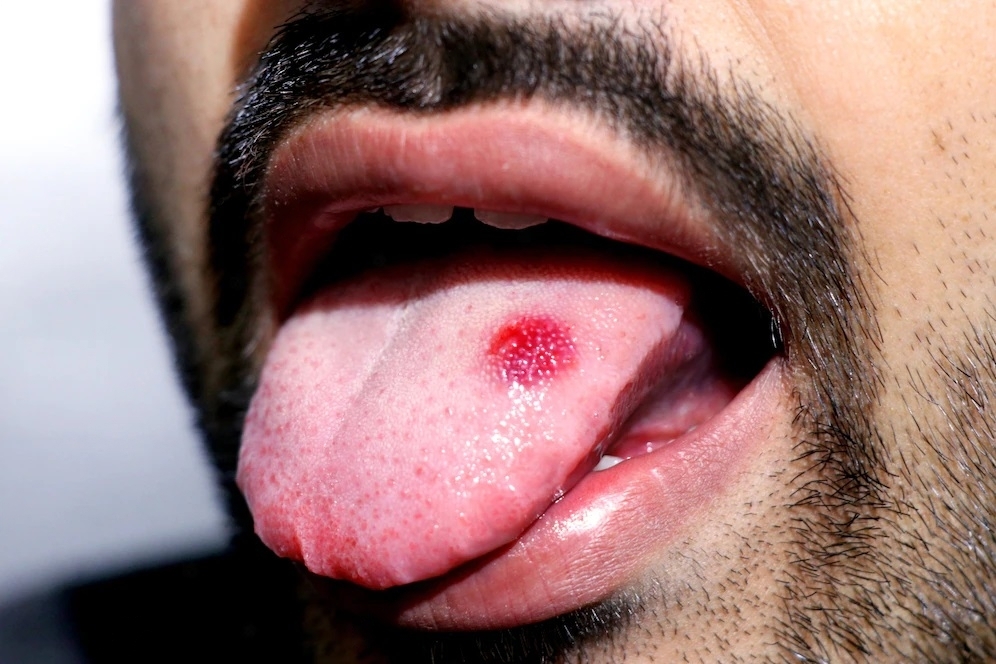Tobacco and its products are well-known for causing a wide range of deadly health risks, such as respiratory diseases, heart disease, and cancer. According to research, smoking and chewing tobacco are the leading causes of mouth cancer.
Because of the high number of tobacco users in the country, oral cancer accounts for more than 30% of cancer cases and is one of the top three most common types of cancer. Statistics show that over five people die from oral cancer every hour in India, demonstrating how widespread this disease is.
What is Mouth Cancer?
Oral cancer is a type of cancer that develops in the tissues of the mouth and throat. Cancer of the lips, tongue, palate, gums, cheeks, and floor of the mouth are examples of this. Tobacco use, such as smoking cigarettes or chewing tobacco, is the most dangerous risk factor, and consuming alcohol along with tobacco increases your risk even more.
What are the symptoms of Mouth cancer?
Early cancer detection leads to better, more successful clinical outcomes and cures in many patients. The early stages of oral cancer may manifest differently in different patients.
The following are some of the most common symptoms of oral cancer:
- Patches of red or white skin around the mouth or lips
- Sores or swelling around the tongue or cheek
- Discomfort in swallowing or chewing
- Lip and mouth sores that refuse to heal
- Teeth loosening
- A lump on the cheek or in the neck
- Numbness of the face and neck
When should you see a doctor?
Regular self-examination is highly recommended, especially for smokers and tobacco chewers. If you have any persistent signs and symptoms that bother you and last more than two weeks, see your doctor or dentist. Your doctor will most likely look into other, more common causes of your symptoms first, such as an infection.
Is Mouth cancer treatable?
When detected early, when the cancer cell mass/tumor is small and has not spread, oral cancer is curable. As a result, it is critical to consult a specialist for any symptom or cancer signs evaluated as soon as possible.
How is mouth cancer detected?
The correct diagnosis of oral cancer is essential because it allows for the most effective cancer treatment plan. The detection of mouth cancer begins with a thorough physical examination of the mouth, tongue, and cheeks for any suspicious growths or tumours. If anything is discovered, a biopsy is performed to look for cancerous cells. Other scans, such as an X-ray, MRI, CT, PET, or endoscopy, may be performed to examine other parts and determine whether the cancer has spread.
Treatment:
As with most other diseases, the earlier oral cancer is detected, the better the chances of survival after treatment. Treatment options are determined by the location of the cancer and the stage of diagnosis. Surgery to remove a tumour, radiation, chemotherapy, and targeted therapy to effectively kill cancer cells are all possible treatments. In more advanced stages, patients may require reconstructive surgeries to compensate for missing bones or tissues, as well as rehabilitative services such as speech therapy to improve functional ability.
Prevention:
There is no proven method of preventing mouth cancer. However, you can lower your risk of developing mouth cancer if you:
- Stop smoking. Stop using tobacco if you do. Don’t start smoking if you don’t already. Tobacco use, whether smoked or chewed, exposes the cells in your mouth to carcinogenic chemicals.
- If you drink alcohol, do so in moderation. Chronic excessive alcohol consumption can irritate your mouth’s cells, making them vulnerable to mouth cancer.
- Avoid getting too much sun on your lips and face. Stay in the shade as much as possible to protect the skin from the sun. Wear a hat that covers your entire face, including your mouth. As part of your regular sun protection routine, use a lip sunscreen product.
Regularly visit your dentist. Your dentist will inspect your entire mouth as part of a routine dental exam for abnormal areas that may indicate mouth cancer or precancerous changes.


